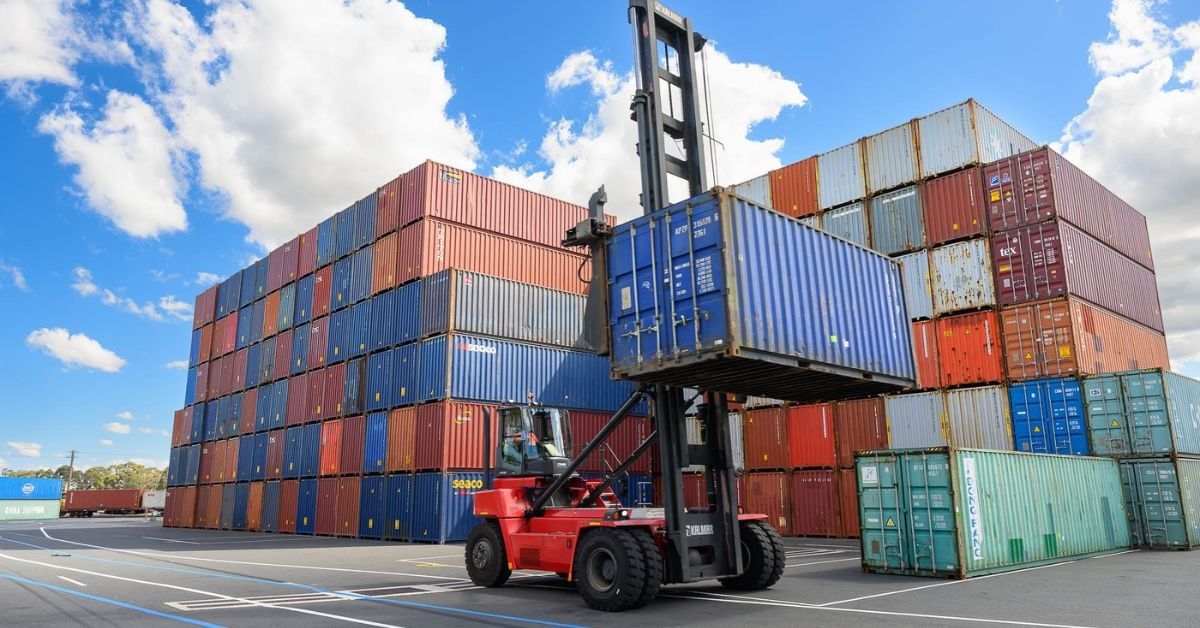Guidelines have been released by the Center to formalize the nation’s empty (sea) container yards and create an effective Empty Container Depot (ECD) system. The possibility of ECDs situated in States or Union territory being registered under the Shops and Establishment Act was one of the main recommendations.
Approximately 1,500 ECDs are located throughout the area, handling 17 million twenty-foot equivalents (TEUs) a year. Twenty to thirty percent of this will be in circulation as empty boxes. The cities of Chennai and Mumbai have the largest concentration. It was determined that regularizing their operations within a systematic framework is essential to strengthening the ECDs, which are crucial in the storage of empty containers for maritime logistics. This places accountability for fair trade practices and well-defined contracts on the shipping lines that operate in India. It is anticipated that this will lower the cost of shipping.
Additionally, it will make it possible for ECDs to build suitable infrastructure for the transportation industry. They ought to be registered with state authorities as commercial establishments. They ought to pay the GST and accept payments online. In its “issuance of suggestive guidelines for ECDs,” the Ministry of Commerce and Industry Department for Promotion of Industry and Internal Trade (Logistics Division) stated that the issue of the inconvenience experienced by EXIM trade with relation to empty containers was brought up by a number of associations at different occasions.
An essential part of the supply chain, ECDs are typically the facilities designed to repair and store empty containers. Guidelines must be prepared in order to improve the efficiency and transparency of ECD operations. Additionally, guidelines have been prepared in cooperation with pertinent stakeholders for future release to trade and concerned Ministries in accordance with the discussions in the joint meetings with the Service Improvement Group.
On behalf of the shipping lines, the ECDs are designed to gather and hold empty containers needed for EXIM trade so they may be transported by land or sea. They are an essential part of the supply chain and also make it easier to repair damaged containers. They often offer lift-off and lift-on services for loading and unloading containers. The formalization of ECDs’ establishment through registration under current state laws, standardization of the facilities and infrastructure they offer, rationalization of tariffs and service fees, and digitization of transactions and processes are all necessary to improve the efficiency and transparency of their operations.
To do this, it is recommended that ECDs in states or union territories register under the Shops and Establishment Act of their respective governments or under any other existing law. They can also have a valid registration number that includes information about their business and operations at a particular location. A GST invoice, ideally via online means, should be used for transactions pertaining to the services entered by the ECDs between or among different parties.
According to the guidelines, shipping lines may be encouraged by port authorities and customs officials at their respective container handling ports to sign contracts with registered ECDs whose services, such as storage, cleaning, repair, and inspection of empty containers, are explicitly mentioned in the contract along with any applicable fees. As far as feasible, shipping lines, consignees, CHAs, freight forwarders, and CFS operators are only permitted to enter into contracts with a registered ECD that has been set up in accordance with the proper procedures and offers sufficient amenities and infrastructure.
In order to efficiently manage the entry and exit of transport vehicles to the ECD and prevent excessive delays, ECDs must also install RFIDs across the property to enable the gate in and out movement of transport vehicles. This might also be made possible at the nation’s ECDs by NICDC Logistic Data Services (NLDS). The Ministry of Ports and Shipping and Waterways and State Maritime Boards and Customs may maintain supervision over the establishment and operations of ECDs operating in the hinterland of respective ports and lCDs in order to avoid ambiguity in the guidelines’ provisions, according to the guidelines.







